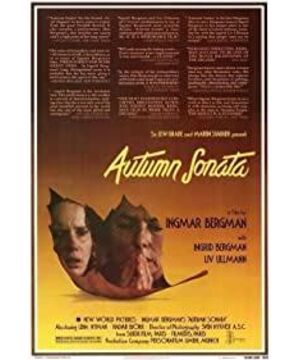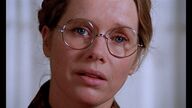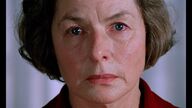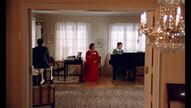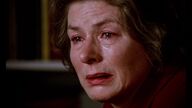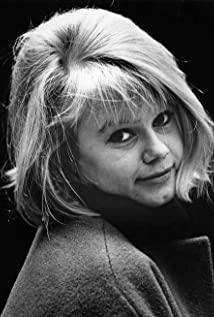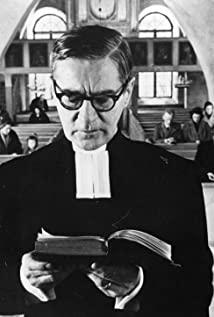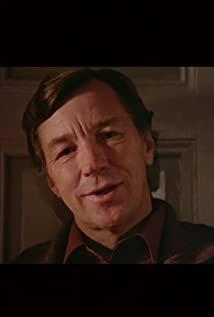I think Ingmar Bergman is definitely the master of the masters in films that portray the relationship between people. I think he must have a deep understanding of psychology, and he has a very thorough research on various types of personality, original family, childhood trauma, etc. If not, it would not be possible to make such a delicate and complex emotional film. The emotional outburst that poured out was very tense, and the long-held hatred reminded me of the heartbreaking description of "both parents are a scourge." In this film, whether the mother pursues herself, is out of balance in the family, lacks the daughter, or the daughter's flattering personality stems from the trauma caused by the absence of the mother in her childhood, it becomes an emotional island and becomes dependent on incompetence. However, the mother's inability to fully assume the responsibility of a mother as a mother also stems from childhood trauma. The repetition of family patterns, and learned helplessness can even be "inherited" is terrifying.
Healing is always on the way, and being able to wake up and communicate face-to-face is already rare. What is powerless is that, whether it is a child or a parent, if one of them cannot communicate with each other, the lonely boat of healing will have no shore to reach.
The ending of the film is not important at all. A face-to-face, heart-wrenching communication will not "put off the quarrel", nor will it solve all the problems caused by childhood trauma once and for all. But, at least, the film allows us to see how important it is to be emotionally satisfied with each other in the relationship between parents and children.
Thousands of words can be written on this topic, because I have too much power to speak. However, as I talked to my friends two days ago, about my relationship with my father, about the trauma caused by my father's absence, I have been healed by a healthy partnership in the past year. It's been an extremely long road, and I can still remember one morning last summer when I "blamed" my father in tears when I was a kid, and I swore I didn't want to forgive him. I have to be honest with my childhood self, so that she can find comfort and go away easily. . . .
Here again, I recommend three books, "The Body Never Forgets: The Brain, Mind, and Body in Trauma Healing", "So Is It All Childhood's Fault?" and "Will You Get Better When You Grow Up?" 》
View more about Autumn Sonata reviews


